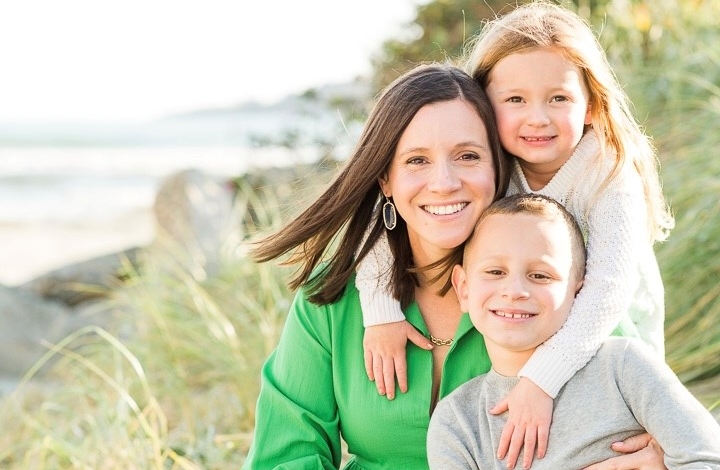- Diseases
- Acoustic Neuroma (14)
- Adrenal Gland Tumor (24)
- Anal Cancer (66)
- Anemia (2)
- Appendix Cancer (16)
- Bile Duct Cancer (28)
- Bladder Cancer (68)
- Brain Metastases (28)
- Brain Tumor (230)
- Breast Cancer (718)
- Breast Implant-Associated Anaplastic Large Cell Lymphoma (2)
- Cancer of Unknown Primary (4)
- Carcinoid Tumor (8)
- Cervical Cancer (154)
- Colon Cancer (164)
- Colorectal Cancer (110)
- Endocrine Tumor (4)
- Esophageal Cancer (42)
- Eye Cancer (36)
- Fallopian Tube Cancer (6)
- Germ Cell Tumor (4)
- Gestational Trophoblastic Disease (2)
- Head and Neck Cancer (6)
- Kidney Cancer (124)
- Leukemia (344)
- Liver Cancer (50)
- Lung Cancer (288)
- Lymphoma (284)
- Mesothelioma (14)
- Metastasis (30)
- Multiple Myeloma (98)
- Myelodysplastic Syndrome (60)
- Myeloproliferative Neoplasm (4)
- Neuroendocrine Tumors (16)
- Oral Cancer (100)
- Ovarian Cancer (170)
- Pancreatic Cancer (166)
- Parathyroid Disease (2)
- Penile Cancer (14)
- Pituitary Tumor (6)
- Prostate Cancer (144)
- Rectal Cancer (58)
- Renal Medullary Carcinoma (6)
- Salivary Gland Cancer (14)
- Sarcoma (236)
- Skin Cancer (296)
- Skull Base Tumors (56)
- Spinal Tumor (12)
- Stomach Cancer (60)
- Testicular Cancer (28)
- Throat Cancer (90)
- Thymoma (6)
- Thyroid Cancer (98)
- Tonsil Cancer (30)
- Uterine Cancer (78)
- Vaginal Cancer (14)
- Vulvar Cancer (18)
- Cancer Topic
- Adolescent and Young Adult Cancer Issues (20)
- Advance Care Planning (10)
- Biostatistics (2)
- Blood Donation (18)
- Bone Health (8)
- COVID-19 (362)
- Cancer Recurrence (120)
- Childhood Cancer Issues (120)
- Clinical Trials (626)
- Complementary Integrative Medicine (24)
- Cytogenetics (2)
- DNA Methylation (4)
- Diagnosis (230)
- Epigenetics (6)
- Fertility (64)
- Follow-up Guidelines (2)
- Health Disparities (14)
- Hereditary Cancer Syndromes (124)
- Immunology (18)
- Li-Fraumeni Syndrome (8)
- Mental Health (118)
- Molecular Diagnostics (8)
- Pain Management (62)
- Palliative Care (8)
- Pathology (10)
- Physical Therapy (18)
- Pregnancy (18)
- Prevention (896)
- Research (390)
- Second Opinion (74)
- Sexuality (16)
- Side Effects (604)
- Sleep Disorders (10)
- Stem Cell Transplantation Cellular Therapy (216)
- Support (404)
- Survivorship (322)
- Symptoms (184)
- Treatment (1776)
Breast cancer survivor: How I’m helping my child cope with my diagnosis
3 minute read | Published October 06, 2017
Medically Reviewed | Last reviewed by an MD Anderson Cancer Center medical professional on October 06, 2017
Last June, I found out I had breast cancer. For me, the worst thing about getting that diagnosis was having to break the news to my 9-year-old daughter, Evelyn. I knew she’d have a lot questions, so I wanted to wait until I had more information about my stage and treatment plan.
When I called MD Anderson to set up an appointment, I found out about MD Anderson West Houston, which is just five minutes from my house. There, I learned my official diagnosis: stage IA triple-positive infiltrating ductal carcinoma. Dr. Sunil Patel explained that even though this type of breast cancer is aggressive, it’s easily treatable with chemotherapy and surgery.
After that appointment, I knew it was time to share the news with Evelyn. Here’s how I’ve helped my daughter cope with my diagnosis.
Seek professional advice and support
Before I told Evelyn about my diagnosis, I sought the help of a social work counselor at MD Anderson in Katy. She gave me some tips and talking points to guide me through my conversation with Evelyn. As I learned from the information she gave me, children will change the topic once they can no longer process the information they’re given. Sure enough, after my husband and I finally told Evelyn about my diagnosis and assured her my prognosis looked good, she asked me a few follow-up questions and then asked if we could bake some blueberry muffins.
Later, she came back to me with more questions. I tried to reassure her that Dr. Patel and the rest of my care team would treat my cancer, but she was hesitant to believe me. After several more attempts to quell her fears, I offered her the chance to speak with Dr. Patel, and she immediately took me up on the offer. I hadn’t even asked Dr. Patel if he’d do it, so I was extremely thankful that he agreed.
I brought Evelyn to my next appointment, and the way Dr. Patel handled it was amazing. Evelyn asked him many questions about my medication and how sick it was going to make me, and Dr. Patel answered each of her questions with so much care and respect. It was exactly what she needed because after that moment, I saw a shift in her attitude.
Stay honest but positive
Since her talk with Dr. Patel, Evelyn has stayed mostly positive. Another big reason for that is because I try to keep a positive attitude around her. I know she’s always watching me, so if I have a good attitude, she’ll have one, too. But I still keep our conversations honest. Every day she asks me how I’m feeling, and I answer her truthfully. On my rough days, I ask her to go make me a cup of tea or do something small for me so that she feels like she’s helping me get better.
Maintain control
When my hair started falling out after my second chemotherapy treatment, we took a family trip to my husband’s barber, and she was right by my side, holding my hand, as my husband’s hair stylist took an electric razor to my head. I wanted her to see that it wasn’t a scary thing or a sad thing, and I wanted to show her that we still had control over cancer and that I’d be losing my hair on my terms.
Keep on living life
Evelyn sees me getting up and doing everything that I always did, just at a different speed. That gives her confidence that I can beat this disease, and I think it’s also helped me better manage it myself. Admittedly, it’s sometimes hard to do even the little tasks. That’s where my husband, family and friends have been incredibly supportive. They’ll make us dinner, come over and help me take Evelyn for playdates.
It’s hard to see the good in a cancer diagnosis, but if there’s a silver lining to it, it’s that I can prove to Evelyn that we can beat this disease together.
Request an appointment at MD Anderson online or by calling 1-877-632-6789.
Related Cancerwise Stories

I know she’s always watching me, so if I have a good attitude, she’ll have one, too.
Trazanna Moreno
Survivor





